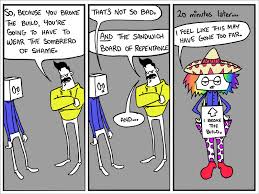disincentive
英 [ˌdɪs.ɪnˈsen.tɪv]
美 [ˌdɪs.ɪnˈsen.t̬ɪv]
- n. 抑制因素
- adj. 抑制的

记忆方法
为了记忆单词“disincentive”,可以将它分解为两个部分:“dis”和“incentive”。记住“incentive”意为激励或鼓励,而“dis”是一个前缀,表示否定或相反的意思。因此,将“dis”理解为减少了“incentive”带来的效果,即“disincentive”意味着减少激励或鼓励的事物,也就是抑制或阻止因素。通过这样的联想,可以帮助记忆“disincentive”的含义。
以上内容由AI生成, 仅供参考和借鉴
中文词源
disincentive 遏制因素
dis-, 不,非,使相反。incentive, 刺激因素。
英语词源
- disincentive (n.)
- 1946; see dis- + incentive (n.).
权威例句
- 1. High marginal tax rates may act as a disincentive to working longer hours.
- 高额的边际税率可能会对加班起到抑制作用。
- 2. Fixed wages and lack of promotion act as a disincentive to employees.
- 工资固定又无晋升机会遏制了雇员的积极性.
- 3. If the government also protects import - competing goods, the disincentive to export production is even stronger.
- 假如政府也保护与进口竞争的货物, 那么对于出口生产的抑制也就更加强烈.
- 4. Hawthorn stem and leaf decoction of Staphylococcus aureus and Bacillus anthracis is also a disincentive.
- 山楂茎、叶煎剂对金黄色葡萄球菌和炭疽杆菌也有抑制作用.
- 5. Greater risks associated with selling in China is one disincentive, Wang points out.
- 王还谈到,在中国销售产品的回款风险也是个很大的障碍.